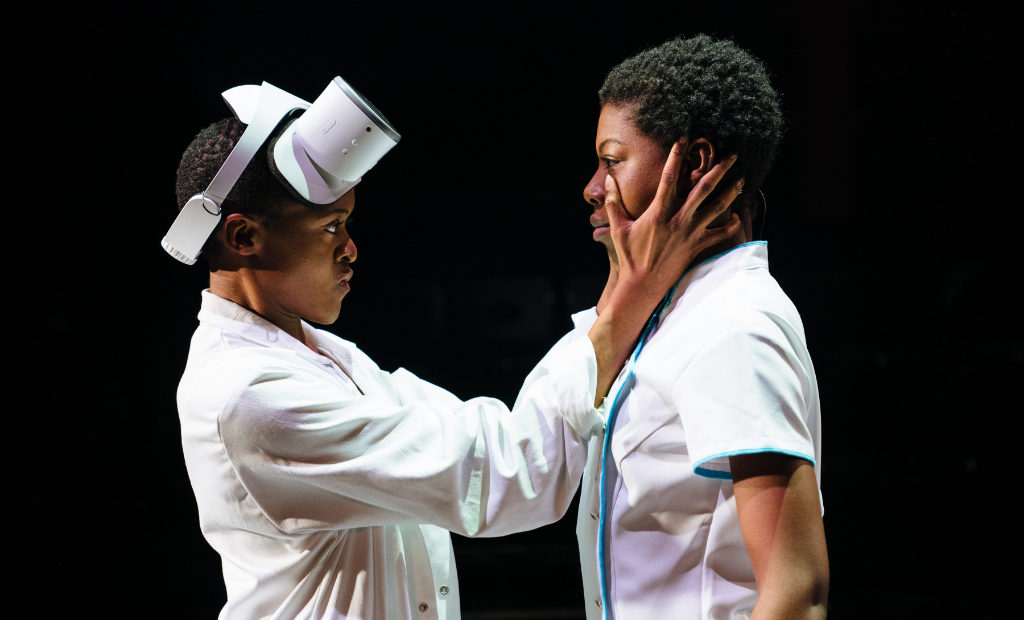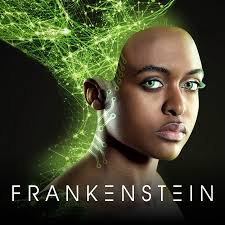Frankenstein at Southwark Playhouse

“In the end, all of this will be unnecessary,” says Walstonecraft (Guy Clark). We are at a conference watching a live polar expedition headed by the speaker’s sister, an anti-social scientist called Bob (Natalie Dunn), and her virtual crew. Things take a turn when a half-frozen woman called Victoria Frankenstein (Ella Dacres) is rescued and begins explaining that she is searching for the sentient artificial intelligence she created and then abandoned.
This modern take on Mary Shelley’s Frankenstein is about a thinking, feeling artificially intelligent robot rather than a monster made from body parts, but aside from all that it is faithful to the original story and puts a 21st-century twist on its themes. The genders of several characters have been changed, which is positive as it allows female actors to make these parts their own without deflecting from the story.
While the idea of this robot with unlimited intelligence but no experience to help her navigate the human world is interesting, the central premise – that the scientist is repulsed by her creation – doesn’t entirely make sense in this play. In the novel, Victor Frankenstein’s monster is hideous and is rejected by the world largely because he doesn’t look like he belongs in it.
In this adaption, Victoria rejects her creature Shell (Sarah Lusack) the second she expresses genuine emotion – even though this was what Victoria was aiming for from the beginning and has been encouraging for months. Perhaps seeing her experiment succeed made the scientist realise she had no idea what to do next, but this wasn’t really explained.
Frankenstein takes place on a long, thin stage with the audience seated on either side. It has futuristic lights dangling from the ceiling and bunk beds are used to represent the ship and offer different levels for the actors to perform on. It is sparse, but nicely futuristic. The costumes – largely made up of white scrubs – are simple, but they look like what you would imagine a robot wearing. The soft, creepy singing of Shell’s victims’ names adds atmosphere to the play.
The ten minutes of virtual reality are enjoyable and show us the monster’s perspective in an innovative, highly technological way. The only problem is that the experience is over too quickly. Lusack gives a convincingly robotic performance as the monster, while Dacres manages to give her slightly two-dimensional character emotional depth.
Frankenstein is an interesting, if slightly predictable, take on our modern fears of AI. You will leave the theatre looking suspiciously at your phone, worrying about what the future holds for humanity and wondering whether you should buy your own VR headset.
Sophia Moss
Photos: Helen Murray
Frankenstein is at Southwark Playhouse from 25th October until 30th November 2019. For further information or to book visit the theatre’s website here.



























Facebook
Twitter
Instagram
YouTube
RSS